By guest contributor Nuala F. Caomhánach
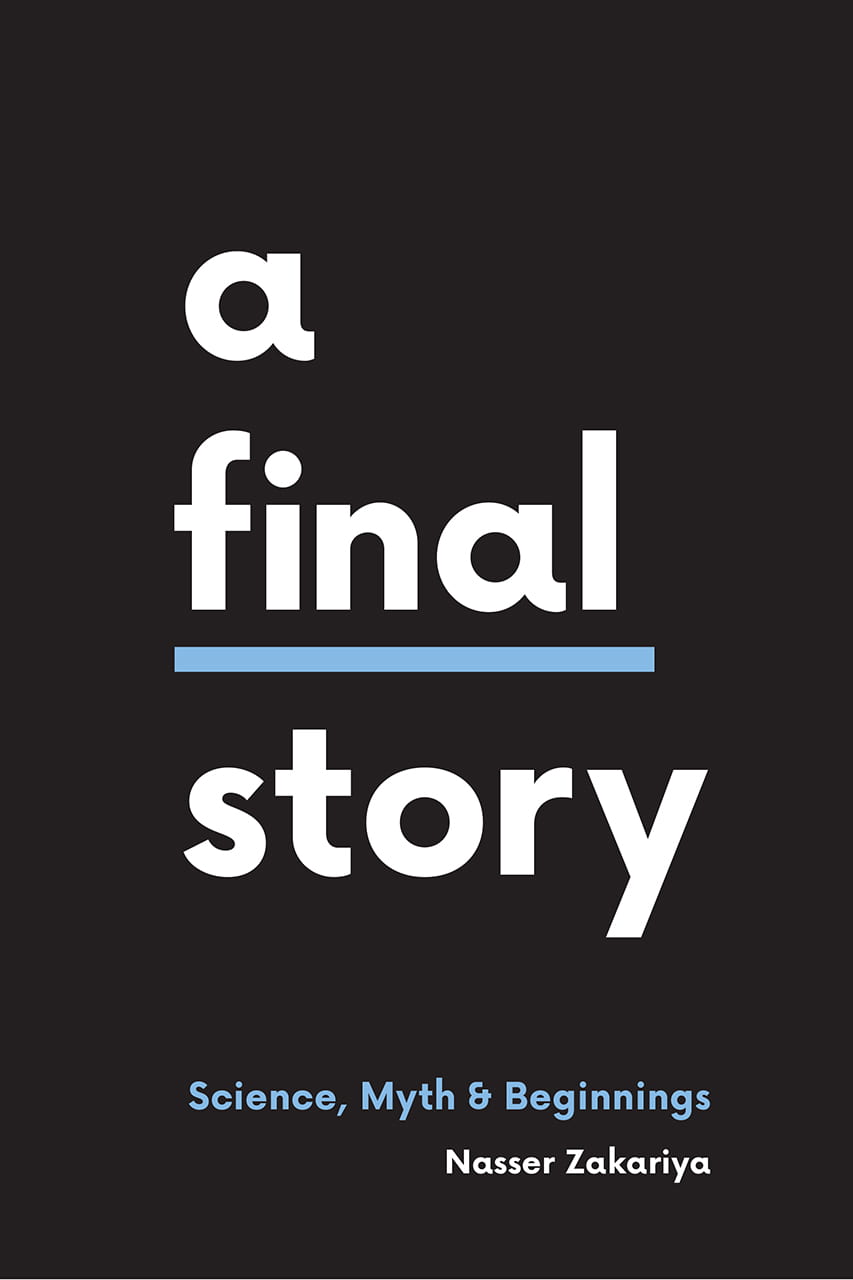
Nasser Zakariya, A Final Story: Science, Myth, and Beginnings (University of Chicago Press, 2017)
In his A Final Story: Science, Myth, and Beginnings (2017), Nasser Zakariya pries open a Latourian black box to reveal how natural philosophers and later scientists constructed “scientific epics” using four possible “genres of synthesis”—historic, fabular, scalar, foundational—to frame all branches of scientific knowledge. Their totalizing aspirations displaced outliers, contradictions, and obstructions to elevate a universal, global history of the universe. Zakariya highlights the paradox of the process of science from the 1830s to the present. He shows how the parallel forces of narration and scientific explanatory methods merely continued to confirm discursive, epistemological and ontological pluralism. The desire to tame this pluralism legitimized the boundaries of science through pedagogy, priority and authority. A panel of historians recently met to discuss the book at New York University, including the author (UC, Berkeley), Myles Jackson (NYU), Hent de Vries (NYU), and Marwa Elshakry (Columbia University), moderated by Stefanos Geroulanos (NYU) (an audio recording of the event is available above).
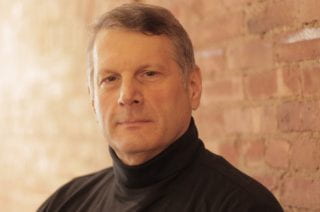
Prof. Myles Jackson (NYU)
Jackson agreed that the invention of a myth or tradition “usually deals with origin stories and tend to be universal.” Tradition “result[s] from some sort of conflict, or debate, shaken identity, boundary dispute and…[has] a moral dimension.” Jackson emphasized how critical the 1820s and 1830s proved as science began to specialize alongside the invention of the term ‘scientist’ (1834) by William Whewell. He wholeheartedly agreed with Zakariya’s interpretation that for such natural philosophers as John Herschel, the “scientific context is irrelevant, precisely because science is universal.” Jackson elaborated on the conflictual divisions between artisans and natural philosophers whereby makers of scientific instrumentation—crucial for advances in science—were denied the status of philosophers themselves. This division proved social, cultural and political at the turn of the nineteenth century, as knowledge became commodified, and natural philosophers legitimized their role as creators and curators of science. Jackson mapped out the “contextual moral” for this transition, and pointed to the Industrial Revolution and its effects on Handwerk and Kopfwerk. Natural philosophers insisted that artisans “should reveal their secrets so that their knowledge could be managed and applied universally, a great Enlightenment trope.” Their interest in economic efficiency focussed on replacing artisan skills and human calculators with controllable machines. For these natural philosophers “the key was the unity of science serving as models for other forms of knowledge.” Yet, as Jackson concluded, “there is an ethics for scientific imperative….the usefulness of useless knowledge….a moral argument that we must do it because it is about knowledge itself.”
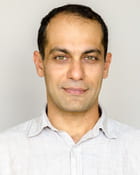
Prof. Nasser Zakariya (UC Berkeley)
Zakariya agreed that there are “still richer contexts” in the analysis of “matters of material practices.” He acknowledged that his actors “were deeply engaged in reconstruction of both technical craft they were working through, and the theorization of that technical craft.” Discourse drew Zakariya away from material practice, toward his actors’ resistance to a historical synthesis. Their anxieties rested with who they imagined had the expertise to undertake this synthesis. Therefore, the synthesis “starts to construct… despite their democratizing impulses… a particular kind of elite that will carry out that democratization.” For Herschel, an author like Alexander von Humboldt in his Kosmos suggested that “if [synthesis] were possible… people like Humboldt [were the philosophers] to do it and yet we find Humboldt is insufficient to be able to do this.” For Zakariya, the discursive maneuvers in trying to articulate “what is and what is not possible” within these genres is at stake. His actors are not stating that synthesis is not possible, only that a historical narrative of the universe was not possible.
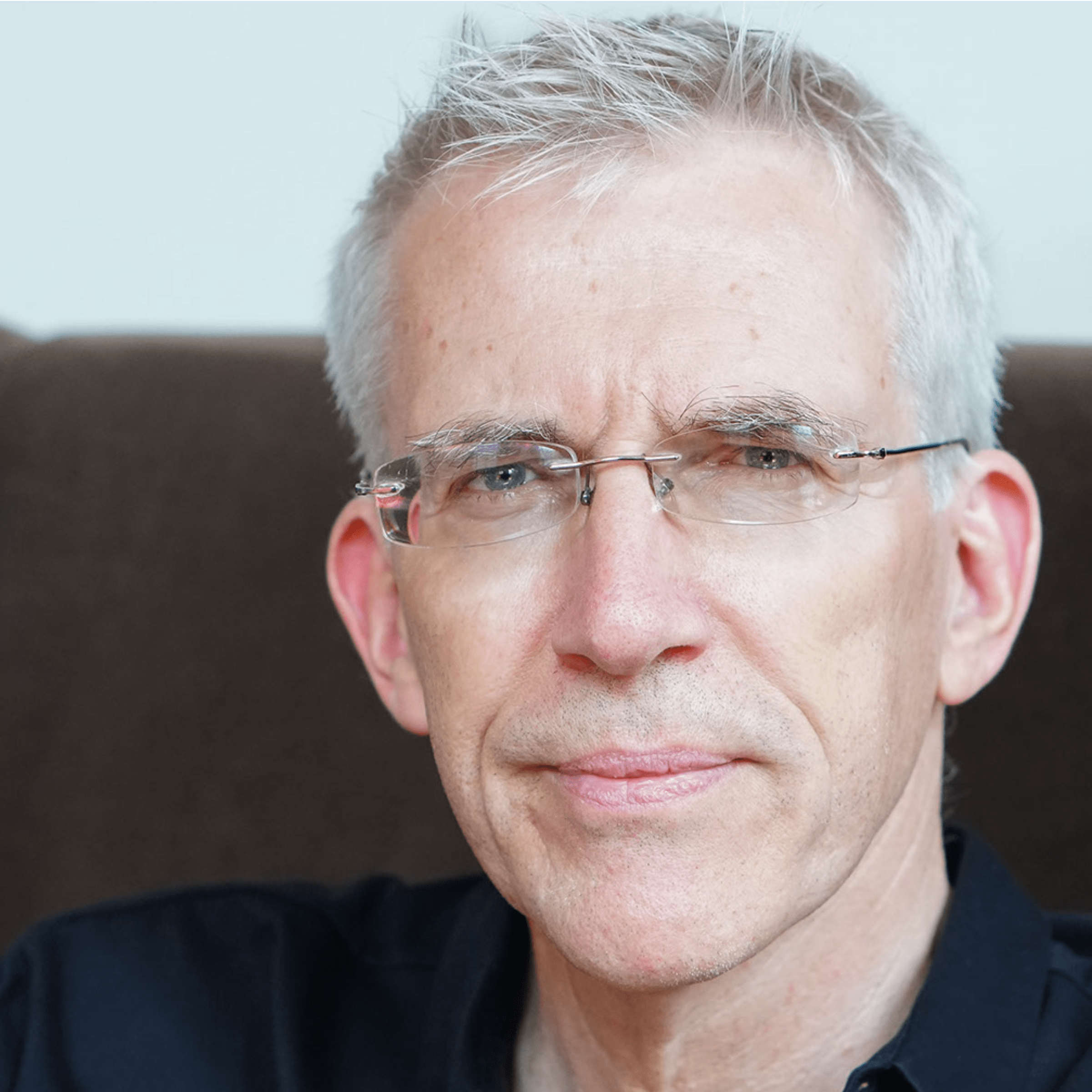
Prof. Hent de Vries (NYU)
For de Vries what is at stake is contemporary scholarship that has returned to the “age-old appeal to myth.” He met Zakariya‘s use of the term “myth” with suspicion, albeit agreeing with its premise. Zakariya echoed Adorno’s and Horkheimer’s concerns in Dialectic of Enlightenment by arguing that “[J]ust as myths already entail enlightenment, with every step enlightenment entangles itself more deeply in mythology. Receiving all its subject matter from myths, in order to destroy them, it falls as judge under the spell of myth” (10). Myth and enlightenment co-evolve into a constricting knot, despite the notion that the foundation of the inductive sciences was based on “the rejection of tradition, mythic authority” (10). With additional knowledge of the physical and natural world, de Vries pointed out the possibility “that there is “a final story” to be told about the emergence of the frames or “genres for synthesizing” knowledge in question.” He emphasized this as “a meta- or mega-narrative, a myth of myth” but problematized that final theories of stories “offer just that” because they are built on “empirical finalities that are… particular, not general and decidedly partial, but also on account of a fundamental, call it transcendentally grounded, incompleteness, of sorts.” “Or is it?” he asked.
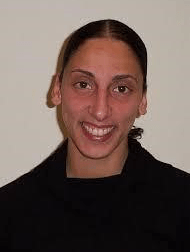
Prof. Marwa Elshakry (Columbia)
Elshakry also probed at Zakariya’s categories of “myth”, “epic” and “universal histories,” out of “genuine curiosities.” She found the main tension was conceptual, not semantic, and was “connected ultimately to [the] alpha and omega of universal history, with myth concerning ultimately and uncomfortably the notion of final ends [and] epic… primarily a concern with origins.” The quest of the scientists as they vacillated “between the known and unknown” is to begin to recognize that “this very heroic quest” may also reveal the “story of self-destruction rather than point the way to cures and wonders or the idea that being human… engages us in an extended historical process of self-destruction.” She wondered about the logic behind the pursuit of “scientific realism as a Hegelian process of negation and death.” Surely this pursuit suggested that humans can “induce and deduce our own ultimate species death and extinction… and yet we cannot.” Therefore, there was an inherent tension between “the secular humanist order and a sacred one.” She concluded with a tantalizing question “what is the final story—if in our own minds own science narratives or cosmic epics, come up with a good origin, but [we seem in our] collective species being imaginaries incapable of dealing with the problem of death itself.”
Zakariya tackled these questions eloquently. He explained how these scientists did not endorse myth uncritically, acknowledging their awareness of the paradoxes they had adopted. This paradox was a “tendency to have this eruption of a kind of mythic status to the project of knowledge, despite the project of knowledge seeing itself often as undercutting the grounds upon myth stands.” These natural philosophers’ and scientists’ totalizing ambitions forced them to question the very axioms with which the framework was constructed. Zakariya noted the constant reinscription “of the work of doing the totalizing” as these men argued that science was the most effective and natural discipline to tell this scientific epic. Their frameworks were limitless, but as they enlarged these structures, the edges became frayed, and they were forced to brood over questions that “[brought] us back to critiques of reason.”
In response to Elshakry, Zakariya revealed that she had uncovered “a number of elements [he] hadn’t quite thought about.” In answer, he discussed Hermann von Helmholtz ‘s views on the idea of universal history. In a period where thermodynamics was emerging around the contradictory concepts of entropy, enthalpy, and conservation, it began to reflect the impossibility of an infinitely old universe. By integrating thermodynamics into a scientific epic, Helmholtz realised that one must “bear up to this idea that it spells a conclusion of ourselves.” Similarly, these epics, for Zakariya, “forc[e] us to dwell on our mortality as a species.”
This book is a must for scholars in both the sciences and the humanities. Zakariya’s intervention, fusing the physical, natural and human histories, shows how the historical narrative in epic form was not self-evident, and a “strict chronology was not the ultimate arbiter” (126). Political contexts and contests influenced competing worldviews of humanity, the Earth, and the universe, in the professional and the public sphere. He demonstrates how a scientific worldview grows from the kind of questions asked, how these physical and metaphysical spaces are symbiotic, complementing and contradicting at the same moment, and how many universes can emerge. At the core of this narrative is a selection of personalities, from Mary Somerville to Steven Weinberg, who oversaw the totalizing visions circulating between professional and popular epics. As they shoe-horned these visions into a single narrative, some made the synthesis, many others sank, and some were transformed, leaving behind the forces, traces, and circumstances they had come up against. Slowly, the “suburban position of humanity and the earth” revealed the real limits of science (313). In this anxiety, the voice of the scientists metamorphosed into the only voice for the planet itself, thus claiming hegemony over the history of the universe. The reader travels through Zakariya’s mindfully researched and vividly written tales of the attempt to stage the construction of a whole of knowledge, of everything. Thus, “whatever the future condition of species being and knowing, the universal human story must be maintained in the generic form of an epic” (339).
Nuala F. Caomhanach is a Ph.D. student in the History Department at New York University, and research associate in the Invertebrate Zoology Department at the American Museum of Natural History.


